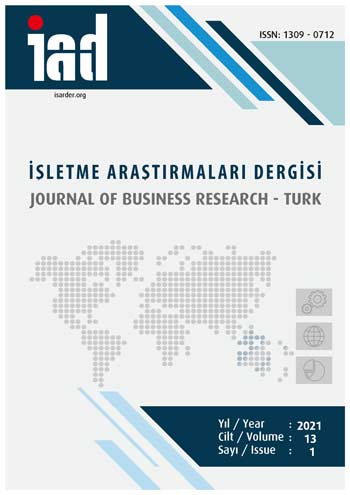Bilgi ve Teknoloji Becerileri ile Sistem Kullanılabilirliklerinin, İşletmelerin Yeni Teknolojiyi Kabul Düzeyi Üzerinden Verimliliklerine Etkisi
The Effect of Information and Technology Skills and System Availability on the Efficiency of Enterprises Over the Level of Acceptance of New Technology
Author(s): Bülent AkkoyunSubject(s): Business Economy / Management, Social psychology and group interaction, Organizational Psychology, ICT Information and Communications Technologies
Published by: Orhan Sağçolak
Keywords: Technology Skills; System Usability; Technology Acceptance Model; Technological Efficiency;
Summary/Abstract: Purpose – The purpose of this study is to reveal the knowledge, media and technology skills that they have and affect their productivity, the usability of their technological systems and the effect network, path and degrees of the acceptance of new technologies within the scope of achieving their ultimate goals. However, considering technology skills competencies that are assumed to have direct effects on technology-oriented productivity and technological system usability, the thought that both variables should affect efficiency together and through the technology acceptance levels of the organization dominates. Therefore, the research question trying to materialize the answer is "Do the information, media and technology skills and technological systems usability of the employees affect their productivity through the acceptance level of the new technology?" It is revealed as. This metaphor also raises the research problem. The difference between the two ideas also determines another starting point of the research. Design/methodology/approach – The data were collected by survey method from 450 employees of the CMC company headquartered in Malatya. The data obtained through the questionnaires were subjected to validity, reliability, explanatory factor analysis and regression assumption analysis in IBM SPSS 22 package program. The hypotheses of the study were tested through path analysis in IBM AMOS 24 program along with multiple hierarchical regression analysis in SPSS 22 program. Findings – As a result of the analysis, it was concluded that the Technology Skills Competencies and Technological System Usability of the employees affect the Technology Oriented Efficiency of the enterprises through the new Technology Acceptance levels. Discussion – As a result of the research, the mediator effect of the technology acceptance model on the effects of the technology skills competencies of the employees and the usability of the technological system on the technology-oriented productivity of the enterprises became concrete. In organizations, technical skills such as programming and digital content development are as important as social skills such as communication, collaboration, problem solving, information and data literacy. It is concluded that when the learnability and usability features of the systems are added to these skills, it will be easier for the employees to accept the technology that the enterprises have recently acquired or developed.
Journal: İşletme Araştırmaları Dergisi
- Issue Year: 13/2021
- Issue No: 1
- Page Range: 739-759
- Page Count: 21
- Language: Turkish

